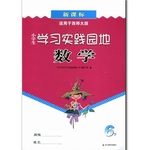题目内容
Every minute should be made use of_______ for the coming exam.
A. preparing B. to prepare
C. prepared D. prepares
B
【解析】
试题分析: 考查非谓语动词。句意:应该利用好每一分钟来准备即将到来的考试。Every minute should be made use of这个句子用了被动语态,故后面表目的状语,故选B项。
考点 : 考查非谓语动词

练习册系列答案
 学习实践园地系列答案
学习实践园地系列答案
相关题目